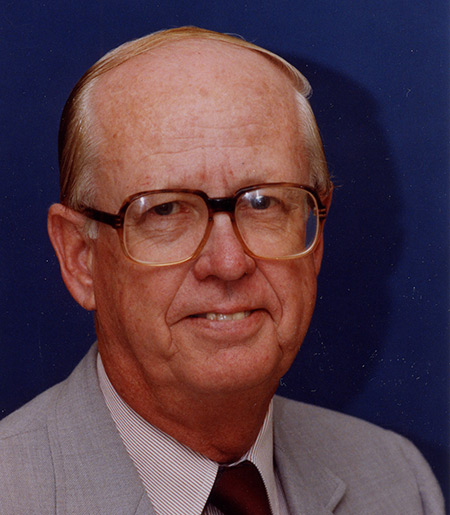Robert Hughes, professor emeritus of chemistry, dies at 92
By Tom Fleischman

Robert E. Hughes, Ph.D. ’52, who taught chemistry at Cornell for 16 years and was co-founder of the University of Pennsylvania’s Laboratory for Research on the Structure of Matter (LRSM), died at his home in Round Hill, Virginia, April 2. He was 92.
A native of New York City, Hughes enlisted in the U.S. Army during World War II, serving from 1942 until 1946. He completed his bachelor’s degree at Lehigh University in 1949 before earning his doctorate in chemistry from Cornell.
Following graduation from Cornell, Hughes went to Penn, where he served as chemistry professor from 1953 to 1964. Following the Soviet Union’s successful launch of Sputnik in 1959, the Defense Advanced Research Projects Agency submitted a request for proposals for an interdisciplinary materials research program. Hughes was appointed to a four-person committee charged with writing the proposal that ultimately funded the LRSM, established in 1960.
Hughes returned to Cornell in 1964 as a full professor of chemistry and was named director of the Materials Science Center (now the Cornell Center for Materials Research) in 1968. He served in that role until 1974, when he was named by President Gerald Ford as a senior science policy analyst in the Office of the Science Adviser to the President.
Also in 1974, Ford named Hughes assistant director of the National Science Foundation, a position he held until 1976.
Hughes left his professorship at Cornell in 1980 to become president of Associated Universities, a nonprofit that builds and manages national research laboratories, including the National Radio Astronomy Observatory. He held that post for 17 years.
Hughes, who was made professor emeritus of chemistry at Cornell in 1988, represented U.S. science interests internationally on numerous occasions. In June 1975, he headed the U.S. delegations to the Eighth Antarctic Treaty Consultative Meeting in Oslo, Norway, and was a member of several U.S.-USSR joint committees over the years. He also served as a delegate to the board of the U.S.-Israel Science Foundation, as well as the U.S.-India Joint Committee for Science and Technology.
Hughes was a member of the American Association for the Advancement of Science, the American Astronomical Society, the American Chemical Society, the American Crystallography Society, the American Physical Society, Sigma Xi and Phi Beta Kappa.
Robert Plane, professor emeritus in the Department of Chemistry and Chemical Biology, said his path and Hughes’ crossed numerous times over the years.
“When he was a grad student, he had a room where he worked on his interpretation of X-ray data on boron,” said Plane, who began as a chemistry professor at Cornell in 1952, while Hughes was a doctoral student under the supervision of professor J.L. Hoard. “He did a great job and solved a difficult problem beautifully. [Nobel laureate] Linus Pauling said it was as beautiful a paper as he ever saw in that field.
“The second time we were close was after he returned to Cornell [in 1964] on the faculty,” said Plane, who became Cornell provost in 1969. “His office was adjacent to mine, and often we were free at the same time and talked science. I learned lots and enjoyed our chats.
“Finally, after we were both retired, he served on the advisory committee to the [Karl G. Jansky] Very Large Array observatory in Socorro, New Mexico,” Plane said. “That brought him to Albuquerque, where I live in retirement, and we would get together for wine, dinner and most enjoyable talks about all kinds of things.”
Hughes “had a formal bearing but was a warm, generous man with a good sense of humor,” said his son, Jeffrey L. Hughes.
“He enjoyed challenging problems to work on, whether in his own research or in administering research institutions,” his son said. “He enjoyed the life of the mind but was unpretentious.”
Hughes is survived by his wife of 63 years, LaVelma (Lou) Hughes, M.A. ’53, Ph.D. ’71, a retired research professor at The American University and formerly a professor of chemistry at Ithaca College; their son Jeffrey; four grandchildren; and a brother.
Media Contact
Get Cornell news delivered right to your inbox.
Subscribe